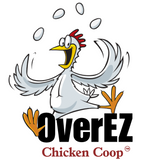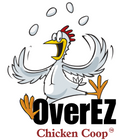Many backyard chicken owners enjoy offering their flock treats, whether it be scraps from the kitchen or delicious frozen fruits for them to peck at on hot summer days. While it is fun to spoil your girls with treats, it’s crucial to know the treats that are safe to feed them and those that might be unhealthy or toxic.
With all of the conflicting information and resources, keeping track of it all can sometimes be a challenge. Our helpful list will help you determine the treats you can give your flock and the treats you should avoid!
What Treats Can You Give to Your Chickens?
- Oatmeal
- Cottage cheese
- Mealworms
- Sunflower seeds
- Yogurt
What Fruits Can Chickens Eat?
- Berries
- Melons
- Bananas
- Watermelon
- Apples - *Except the seeds!
- Strawberries
- Blueberries
- Pumpkins
- Squash
What Vegetables Can Chickens Eat?
- Cracked corn
- Cabbage
- Beets
- Broccoli
- Kale
- Swiss chard
- Cucumbers
- Sweet Potatoes - These potatoes are part of the morning glory family, not the nightshade family, making them safe to give to your chickens.
Toxic Foods to Avoid Giving Your Chickens
The foods listed below are potentially toxic but may not be immediately fatal in small amounts to healthy adult chickens.
Avocado
Due to the toxin persin, chickens shouldn’t be given any part of an avocado, the flesh, pit, or skin. Avocados have been associated with toxicosis.

White Potatoes
Chickens shouldn’t be given white potatoes cooked or raw. Potatoes are a part of the nightshade family and contain the toxin solanine. Solanine destroys red blood cells and can lead to heart failure and diarrhea.
Peppers, Eggplants, and Tomatoes
Chickens shouldn’t eat peppers, eggplants, or tomatoes because they belong to the nightshade family. The toxin solanine affects a chicken’s GI tract and nervous system and can cause respiratory problems, loss of motor function, and death.
Fruit Pits or Apple Seeds
Seeds and pits from apples, cherries, pears, peaches, and plums should not be given to chickens because they contain trace amounts of cyanide. The fruits are perfectly fine to give to your flock as long as they are pitted or cored.

Mushrooms
Store-bought mushrooms are safe for chickens to eat. However, it is not advisable to allow your chickens to develop a habit of eating mushrooms of any kind, particularly if they roam freely. Several types of mushrooms grow wild, are toxic, and pose a threat to your flock.
Raw Dried Beans
Raw dried beans contain phytohemagglutinin, which is a natural insecticide that is harmful to humans and animals. Once the beans are soaked and properly cooked, they are fine to give to your flock.
Sprouted, fresh, frozen, or canned beans are okay for your chickens to eat.
Onions
Chickens shouldn’t eat onions because they contain a toxin called thiosulphate that destroys red blood cells. Excessive amounts of onion can cause jaundice, anemia, or even death in chickens.
Caffeine
Chickens shouldn’t have caffeine because it can cause heart arrhythmia or death.

Candy or Chocolate
Candy or chocolate can be deadly for chickens because of theobromine, which can cause death, seizures, or vomiting.
Moldy Food
You shouldn’t give anything moldy to your flock. However, stale cereal or bread, wilted vegetables, and overripe fruits are okay.
Overly Salty Foods
Chickens shouldn’t eat foods that are too salty. A chicken’s diet should include a bit of salt. However, they shouldn’t eat foods that are too salty because it can cause dehydration and lead to kidney problems.
Chemically Treated Foods
Chickens shouldn’t eat chemically treated foods or anything that has been sprayed with pesticides or herbicides. If your flock has free-ranging access to a lawn or garden, be cautious about using any chemicals.
Foods That Are Safe to Give to Chickens in Small Amounts
Citrus Fruits
Citrus can interfere with calcium absorption, which contributes to thin-shelled or fewer eggs. Because of this, chickens shouldn’t be given oranges or other citrus fruits regularly. But it is okay to give it to them occasionally.
Spinach
Although nutritious, Spinach contains oxalic acid, which interferes with calcium absorption. Because of this, it should only be given to your chickens occasionally.

Asparagus
Asparagus can taint the taste of your eggs, so chickens shouldn’t eat too much of it.
Iceberg Lettuce
Iceberg lettuce has very little nutritional value and can cause diarrhea in large amounts, so chickens shouldn’t eat too much of it.

White Grain
White grain products like white rice, bread, and pasta shouldn’t be given in large amounts to your flock because they have little nutritional value.
Dairy Products
Chickens shouldn’t eat too much dairy, including yogurt, milk, and cheese. Since chickens are not designed to digest milk sugars, dairy products can give them diarrhea.
Symptoms of Food Toxicity in Chickens
The ingestion of toxic substances might not result in immediate death for a chicken. Numerous toxins can accumulate in the body, and visible signs of distress take time to manifest. Symptoms can include:
- Paralysis
- Loss of motor control
- Loss of appetite
- Weakness
- Depression and isolation from the flock
- Respiratory changes or distress
- Poor egg quality or laying fewer eggs
- Rapid heartbeat
- Diarrhea
- Convulsions
- Kidney failure
- Hemorrhaging
- Internal congestion
If you discover a chicken displaying these symptoms, it is crucial to take them to the veterinarian or contact an animal poison control center. The sooner your chicken gets help, the better!
Balanced Diet for Chickens
A chicken’s diet requires a balanced feed with minerals, vitamins, carbohydrates, fats, and proteins. Ensuring they get the nutrition and variety they need is vital to the health of your flock and their eggs. When giving your chickens treats, follow the 90/10 rule for feeding. Provide complete feed for at least 90% of your chicken’s diet, and the remaining 10% can be treats, herbs, scratch grains, etc.
Do your chickens enjoy a treat we didn’t mention? Let us know in the comments!

